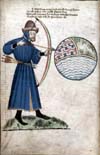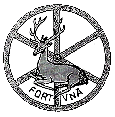International
John Gower
Society

|
|
Gower, John and Contemporaries
- “The
Cambridge History of English and American Literature: the End of the
Middle Ages.” Volume II: The End of the Middle Ages. Edited
by A. W. Ward & A. R. Waller. Bartleby.com: Great Books Online.
- Links to biographies, early writings, style influences, and historical
references, among other information surrounding great Medieval writers
such as John Wyclif, Sir John Mandeville, William Caxton, Geoffrey
Chaucer, and William Langland.
Wyclif, John
- “Wyclif,
John.” The Columbia Encyclopedia. Bartleby.com: Great Books
Online.
- General encyclopedia site containing information on Wyclif's early
life, early writings, and scholasticism. Investigates Wyclif’s
philosophical and academic writing—controversy in the religious
world. Information and debate on his attacks of the Doctrine of Transubstantiation.
- Beidler,
Peter G. “John Wyclif.” www.the-orb.net. 2001.
- Strong peer-reviewed academic site (ORB)
containing Wyclif’s biography, descriptions of his life, his
writings, excerpts from his writings, and also his scholarly and academic
relationship with Chaucer.
- Muhlberger,
Steven. “Relgious Conflict in 14th Century England.” www.the-orb.net.
1999. 18 March 2007.
- Strong peer-reviewed academic site (ORB)
containing information on heresy in England as well as Wyclif’s
patrons and his ideas on religion and transubstantiation.
- Stanford
Encyclopedia of Philosophy. Ed. Alessandro Conti. 2005.
- Specialized encyclopedia site containing Wyclif’s general
biography and chronological works biography. Also discusses the style
and logic behind Wyclif’s writing, as well as his theories on
the relationship between thought and reality, and his religious affiliations.
Strong bibliography of useful primary and secondary sources on Wyclif
also included. See also Stephen Lahey's entry on Wyclif's
Political Philosophy.
Lydgate, John
- “John
Lydgate’s Prologue to the Siege of Thebes: Introduction.”
Ed. John M. Bowers. 1992.
- The TEAMS
Middle English Texts edition. Contains introduciton and prologue
to the “Siege of Thebes.” Biographic information and biographic
information relative to Lydgate’s work. His academic and stylistic
relationship with Chaucer.
- Reimer,
Stephen R. “The Canon of John Lydgate.” 2005. Edmonton,
Canada: University of Alberta.
- Links to full text articles and abstracts written by Stephen R.
Reimer (Associate Professor of English at the University of Alberta,
Canada). Articles reflect his knowledge and scholarship in stylistics
and authorship, particularly in Lydgate’s works.
- “The
World of Chaucer: Contemporaries.” n.d. University of Glasgow.
- Juxtaposes Lydgate’s work with Chaucer's. Contains some biographic
material, an overview and analysis of the morality and biblical references
in Lydgate’s “Fall of Princes;” and a discussion
of religious strength and enlightenment in his “Life of Our
Lady.”
- “Vox
ultima Crucis.” The Oxford Book of English Verse. Ed. Arthur
Quiller-Couch, 1919. Bartleby.com.
- This site contains the eText of Lydgate’s short poem, “Vox
ultima Crucis.”
Mandeville, Sir John
- Knight,
Kevin. “Jean de Mandeville.” The Catholic Encyclopedia.
2007.
- Obvious religious influence and connotation—possible source
of bias for the page. Recently updated and references nearly 11,000
Catholic articles. Source of the Pulic Encylopedia Press—possibly
more dependable and less influenced by the Catholic resources.
- "Mandeville,
Sir John.” The Columbia Encyclopedia. Bartleby.com. 2005.
- Contains the early work and several translations of Mandeville’s
work. Discusses Mandeville’s style and detail in an overview
of his most popular work: The Travels of Sir John Mandeville.
- “The
Travels of Sir John Mandeville.” The Online Book Page. 1997.
9 March 2007.
- Project Gutenberg's text (online and downloadable) of The Travels
of Sir John Mandeville.
Caxton, William
- “Historic
Figures: William Caxton.” n.d. bbc.co.uk/history.
- The BBC's biography of Caxton, including a list of patrons. Also
discusses Caxton’s travels, the books he printed, and those
he translated.
- “Printing
in England from William Caxton to Christopher Barker.” n.d.
University of Glasgow: Special Collections.
- Posted bu the University of Glasgow's Special Collections, this
site includes a biography and lists Caxton’s printings and the
stylistic tendencies of the works he printed. Also includes images
of his printings and descriptions of the works he printed.
- “William
Caxton.” Renaissance Reflections. n.d.
- A private (non-academic) site that contains a biography and history
of William Caxton. Suggests that Caxton’s work revolves around
mercantilism and translating other texts. Site does not post any bibliographic/reference
information. It does, however, include some wonderful images of Caxton
postage stamps.
Chaucer, Geoffrey
- Beidler,
Peter G. “Chaucer’s Life.” 2001. www.the-orb.net.
- Includes biography and life history, including his travels and how
they influenced his work. Also contains information on his manuscripts
and their locations.
- “Chaucer
Metapage.” Ed. Joseph Wittig. International Congress of Medeival
Studies.
2007.
- Contains links to Chaucer’s life, his canon, early editions,
text overviews, and his contemporaries, among other features. Posts
a bibliography of references and tools for teaching and understanding
Chaucer. Contributors include academics from over a dozen universities,
including Harvard, UNC, VMI, Towson, etc.
- “The
Canterbury Tales.” Librarius. 1997. 9 March 2007.
- Contains the eText of Chaucer’s Canterbury Tales as well
as a glossary of Chaucer’s vocabulary. It also contains a brief
overview of the work and links for further study.
Langland, William
- “The
Vision of Piers Plowman.” University of Virginia Library. 2006.
- An eText from the University of Virginia virtual library.
- “William
Langland.” Ed. L.D. Benson. The Geoffrey Chaucer Page. 2006.
- This site contains a brief biography on William Langland. This
site is in assocation with Harvard and the “Chaucer Metapage.”
Pearl Poet
- “Anonymous.
Pearl.” University of Virginia Library. 2006.
- Another eText from the University of Virginia virtual library.
- “Pearl
and the Pearl Poet Overview.” 1994.
- This page (posted by the medieval studies student organization at
Purdue University) includes an overview of the Pearl Poet and also
references the controversies, versification, symbolism, etc. of his/her
writing. The information derives from the authoratative Dictionary
of Literary Biography.
- “The
Pearl Poet.” Ed. Paul Deane. A Treasury of Alliterative and
Accentual Poetry. 2006.
- This site (edited by a lexicographer and computational linguist)
introduces the “Pearl Poet;” provides translations of
the works (by various poets), and links to other resources for the
study of the Pearl Poet. Contains a strong list of contributors.
|
|


